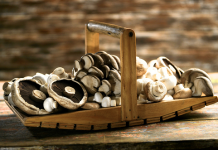Coffee. It needs no introduction and no excuse to be enjoyed. But when there’s a greater good behind every cup, there’s even more incentive to savour the aroma.
Good for the environment, good for the community and good for the soul, Shiloh Coffee Estate in Hazyview has achieved a hat-trick in producing its coffee. By following farming practices that conserve the indigenous bush and creating jobs for especially women and the elderly, there is goodness in every cup.
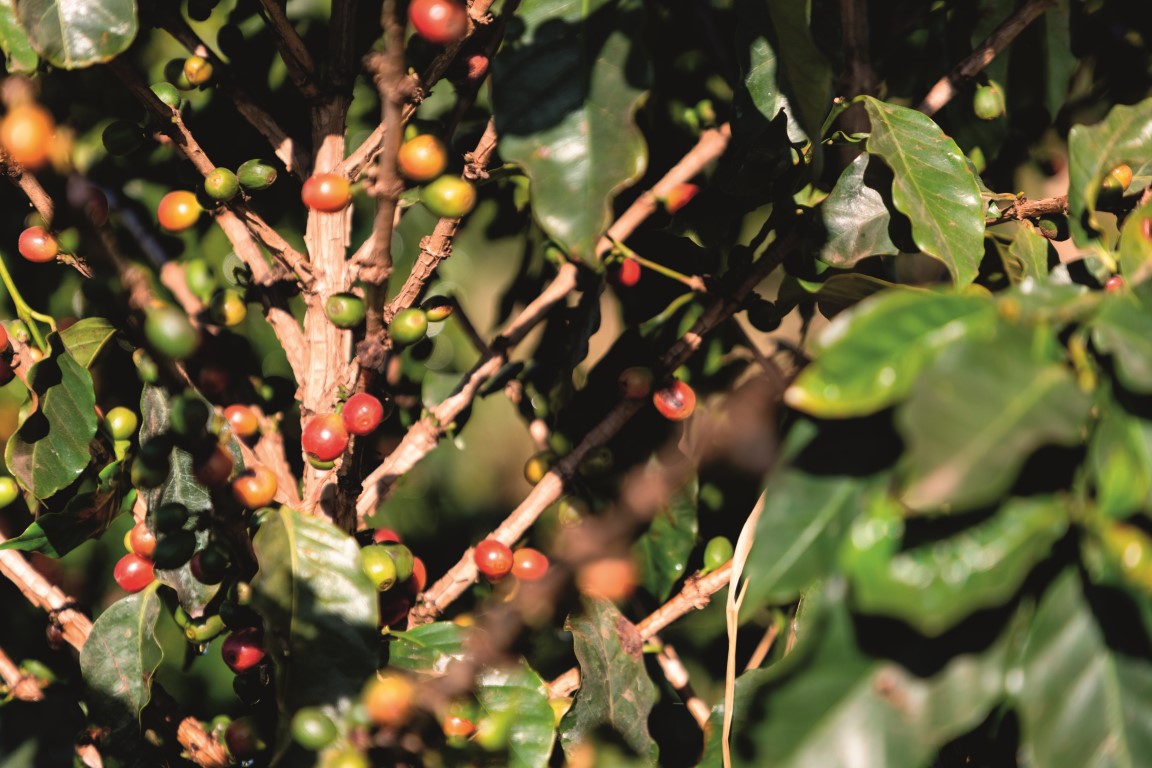
Three years in the making, mother-and-son team Mariana and Wolfgang Schroeder have turned Shiloh into a productive farm and tourist destination. But what today is a flourishing farm with a myriad of opportunities, started in tragedy.
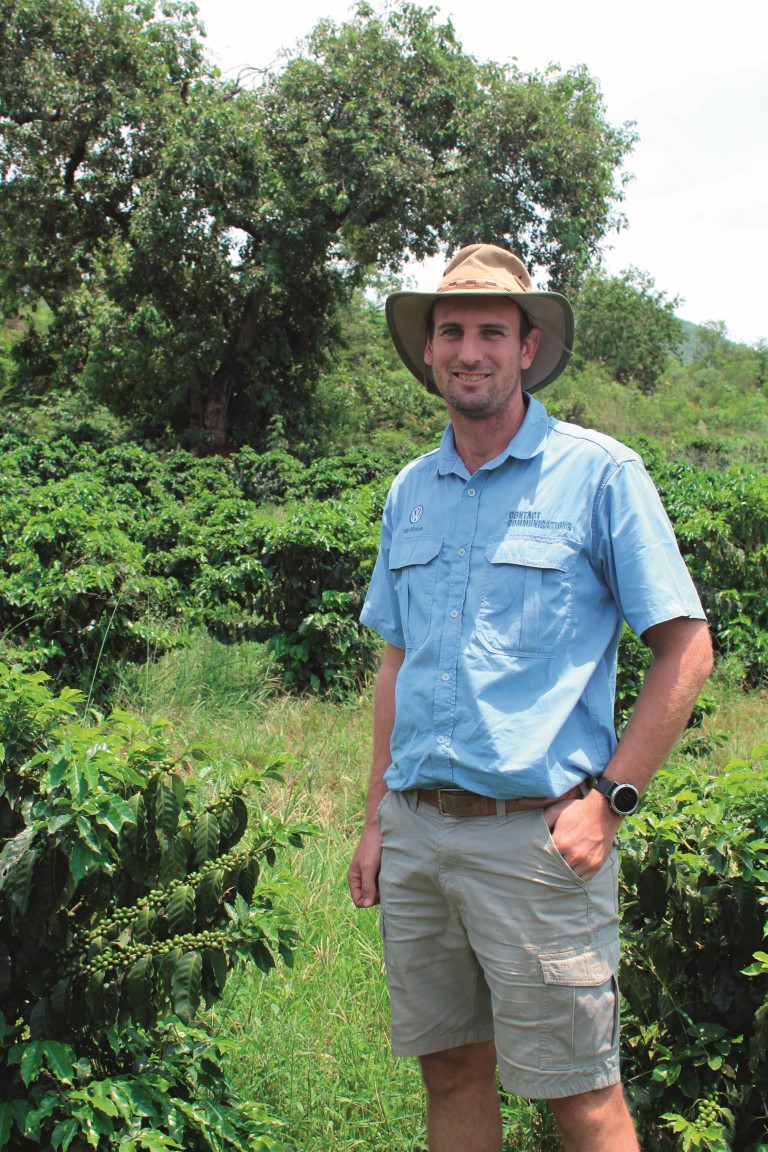
Wolfgang Schroeder
The Schroeders’ macadamia farm further down the road neighbours a land reform farm of which the beneficiaries were looking for a way to create income opportunities for as large a group as possible. In 2016 the Schroeders decided to partner with them to plant coffee as the climate was conducive and the high labour requirement meant that more community members could be employed. “We provided all the trees and were on the brink of planting when a fire broke out and everything burnt down. The land reform community then stopped the project and we sat with all the trees that needed to be planted quickly,” Wolfgang relates.
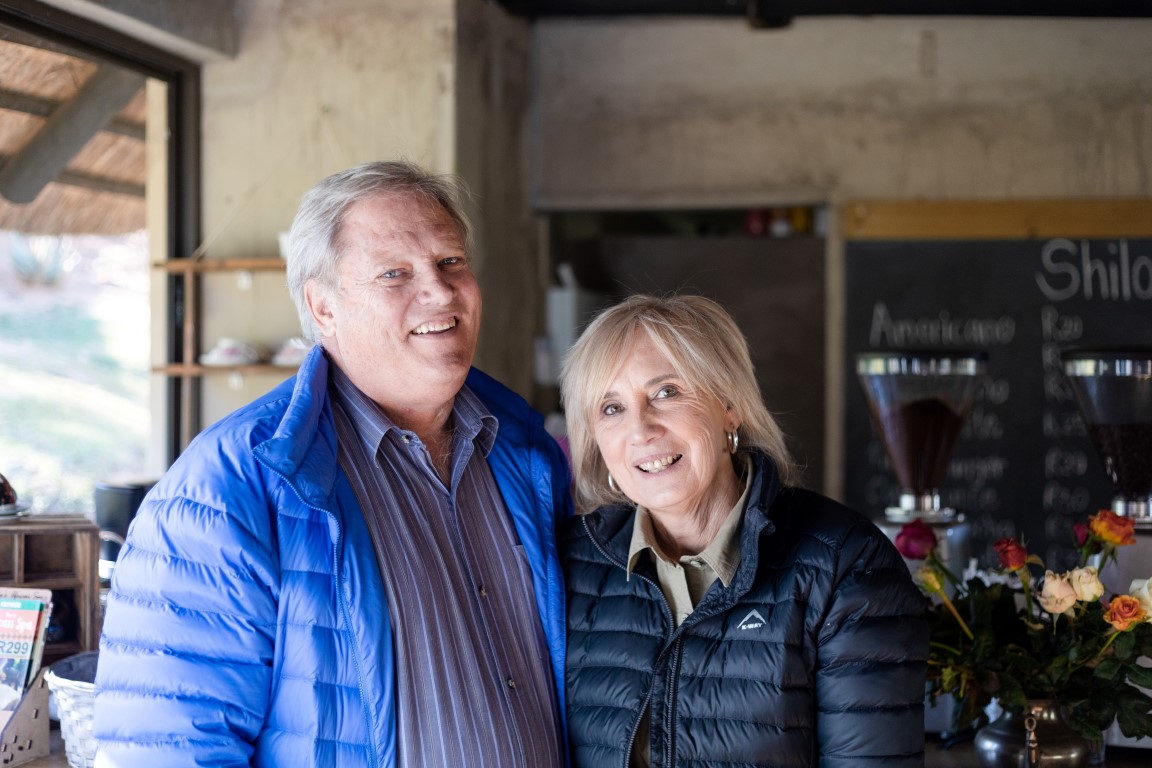
Peter and Mariana Schroeder
As fate would have it, a farm down the road came onto the market and the Schroeders jumped at the golden opportunity to purchase it, rushing to get the trees into the ground. Bit by bit the farm has expanded and today includes a coffee shop that allows tourists to taste the very coffee they can see growing from the restaurant’s deck overlooking the rolling hills. Mariana explains that when the farm started taking off they realised there was a need for people to taste the product on the premises. “We converted an old boathouse next to the farm dam into a coffee shop with a deck and started selling coffee and cake.
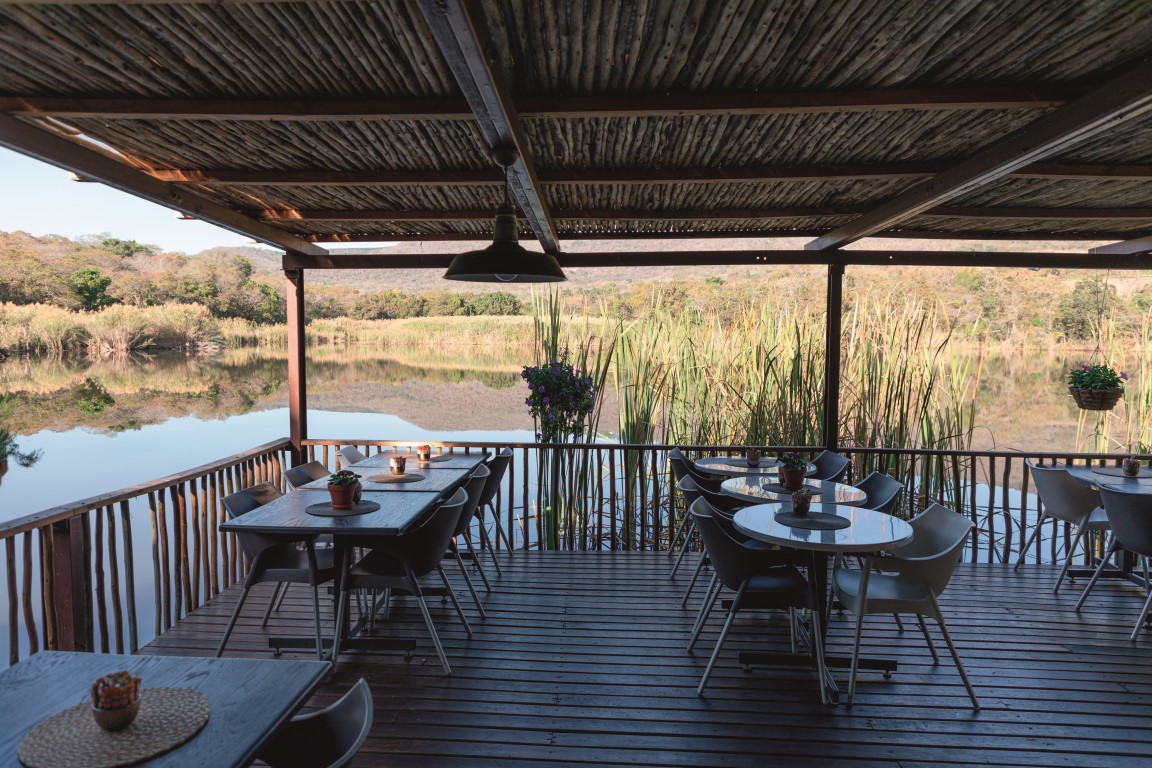
“The tranquil atmosphere and farm vistas make for the ideal venue and it inevitably grew from a restaurant serving light meals to a steady stream of tourists and locals who have functions and meetings at our coffee shop. We serve cakes that feature local produce like macadamia nuts and preserved ginger, and freshly baked quiches.”
Inquisitive tourists can also take part in tours around the plantation and get a first-hand experience of what goes into producing a cuppa Joe.
Noting a range of Hazyview’s indigenous trees among the coffee shrubs, Wolfgang explains that heat affects the quality of the coffee bean, which necessitates a certain amount of shade in the orchards. “The higher the temperature, the quicker the beans grow and the lower the density. These lighter ones offer a less robust flavour and consequently fetch a lower price. We realised that instead of clearing the whole field to plant new coffee shrubs, we could rely on the older trees to provide shade, so we leave a certain number of trees in the orchards.”
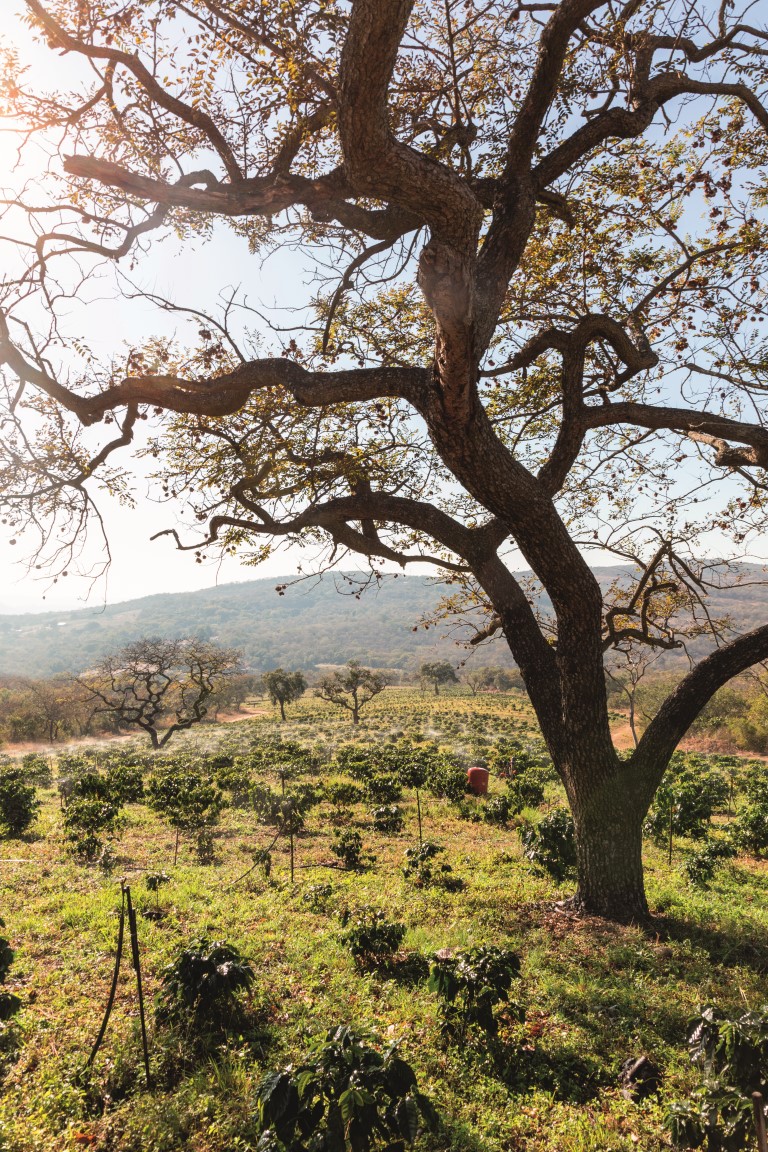
Furthermore, Wolfgang preserves the surrounding indigenous bush as it provides a habitat for predators of coffee pests. “Most of the detrimental insects prevalent in coffee plantations have natural predators. In the indigenous forests surrounding the plantations there are eight different types of wasps that feed on the coffee stem borer. If we cleared the whole area there wouldn’t be a natural habitat for the wasps, so it’s important to maintain the ecological balance.”
With the popularity of coffee on the rise, prices paid to farmers have followed suit, which makes the crop viable despite the high labour expense. “There is much incentive to develop this industry in South Africa, considering the high labour component. The workers get paid per kilogram picked and they all achieve minimum wage plus 50%. It’s the ideal work for women and the elderly because it’s not back-breaking labour. We also find the women are gentler in the picking process,” he says.
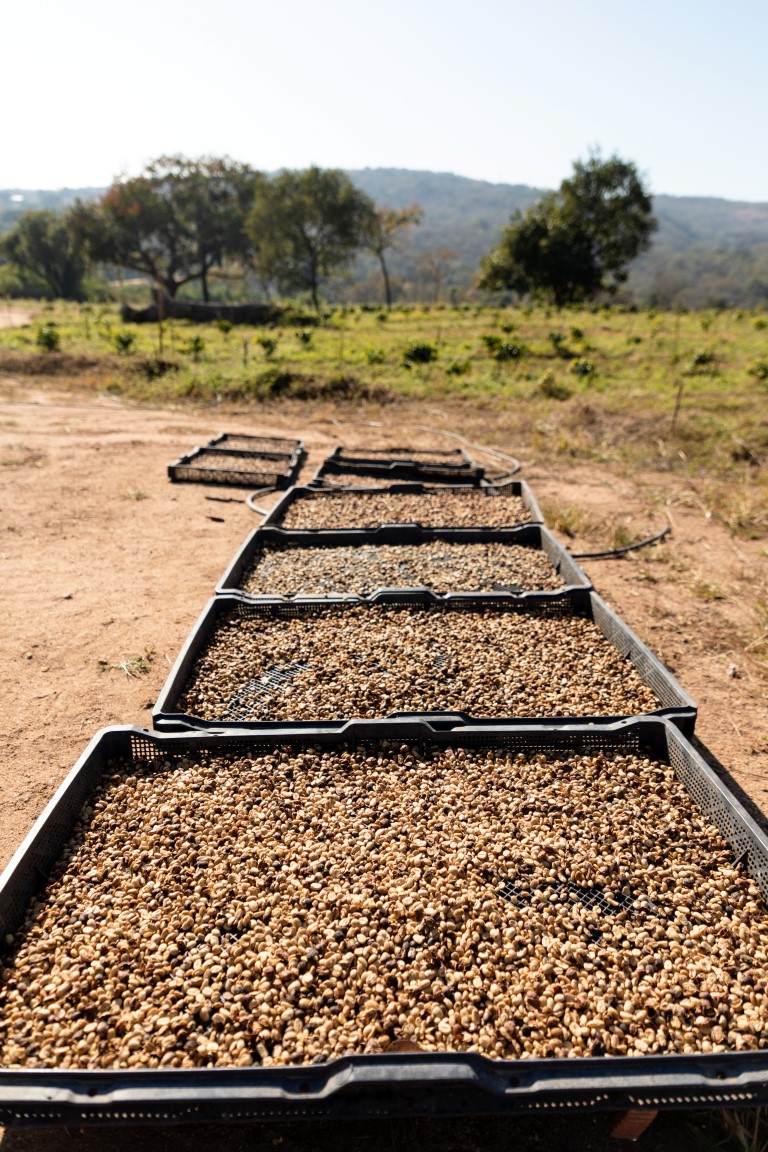
Once the berries are harvested the skin, pulp and hull surrounding the bean are removed and the beans are dried. They are then polished and sorted according to size and colour. A gravity sorter is used to sort according to density and a colour sorter to split the different colours. This is done at a facility in Delmas since the farm’s volume does not yet justify the expense of this specialised equipment. Roasting is outsourced to a company in Johannesburg.
Wolfgang explains that depending on the density of the bean, the roasting process can take longer or shorter as lighter ones roast quickly and denser ones take longer.
“It is important to get this recipe right, because the roasting process can make or break the coffee.”
The coffee is then tasted and scored. A score of above 90 is classified as speciality coffee and a premium price is obtained. A score between 75 and 90 is commercial grade and below that is substandard. Shiloh obtains a score of 82.
Thereafter the product is packaged and a portion is labelled under the Shiloh brand for sale in the coffee shop and the rest is sold for export under a commercial label. He says Shiloh will eventually sell its coffee under its label to a wider audience once it has achieved the necessary volume. For now, Shiloh’s coffee can be enjoyed amid spectacular views on the farm and beans and ground coffee can be purchased to share the aroma at home.
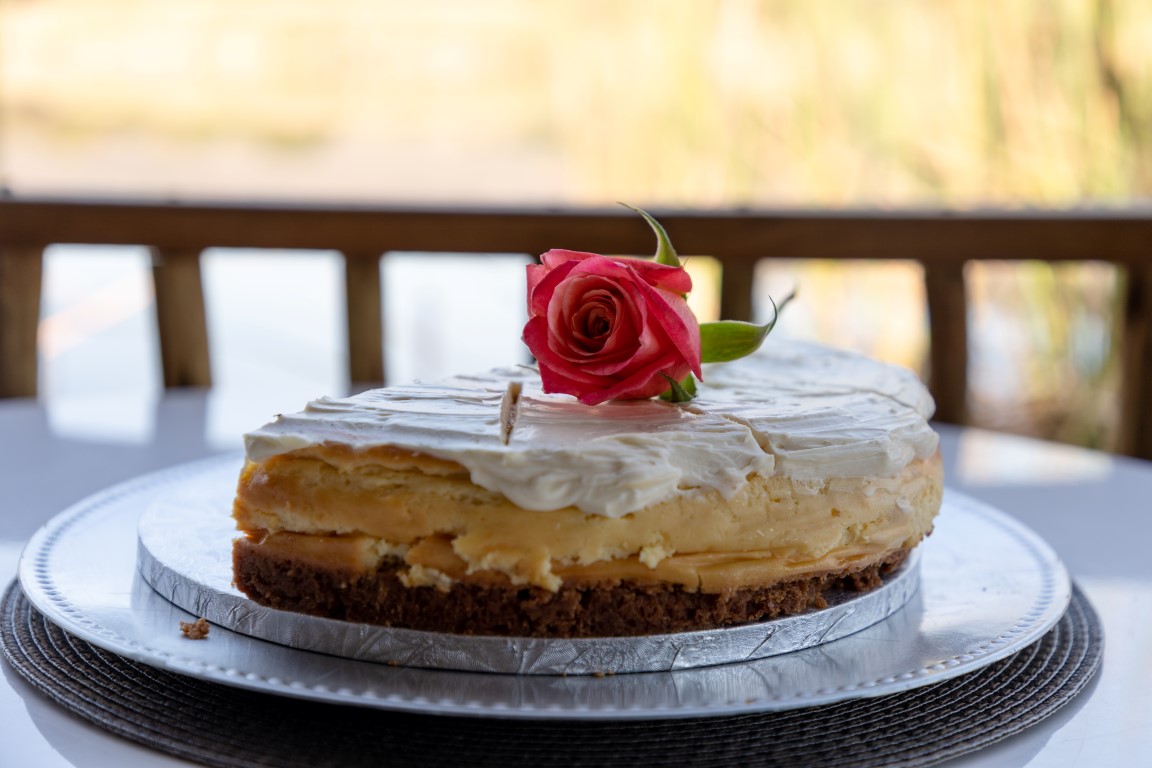
Details
Shiloh Coffee Estate on 079-290-9567
Text: LINDI BOTHA. Photographer: TANYA ERASMUS


